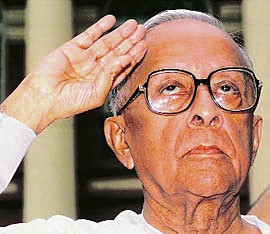
Basu’s Bengal: A Legacy of Red Revolution and Unfinished Business
Jyoti Basu, the stalwart communist leader who steered West Bengal for an unprecedented 23 years, left an indelible mark on the state’s political and socio-economic landscape. His tenure, from 1977 to 2000, saw significant land reforms aimed at empowering the peasantry.
Decentralization of power was a key tenet of his administration. This initiative aimed to bring governance closer to the grassroots, fostering local participation in development. His government also implemented policies boosting agricultural output and attracting industrial investment.
However, Basu’s rule wasn’t without its challenges. His government grappled with periods of significant social unrest and faced criticism regarding the pace of industrial growth and its overall impact on the state’s economy.
Despite being offered the Prime Ministership, a testament to his national stature, Basu remained steadfast in his commitment to the Communist Party of India (Marxist). This unwavering loyalty, while admired by many, also shaped the trajectory of West Bengal’s development.
His legacy continues to fuel debate, a complex mix of achievements and shortcomings. The ongoing discussions around land rights and equitable development in West Bengal today are a direct reflection of the policies he championed and the challenges he left unresolved. Understanding Basu’s era is crucial to navigating the state’s political and economic future.






